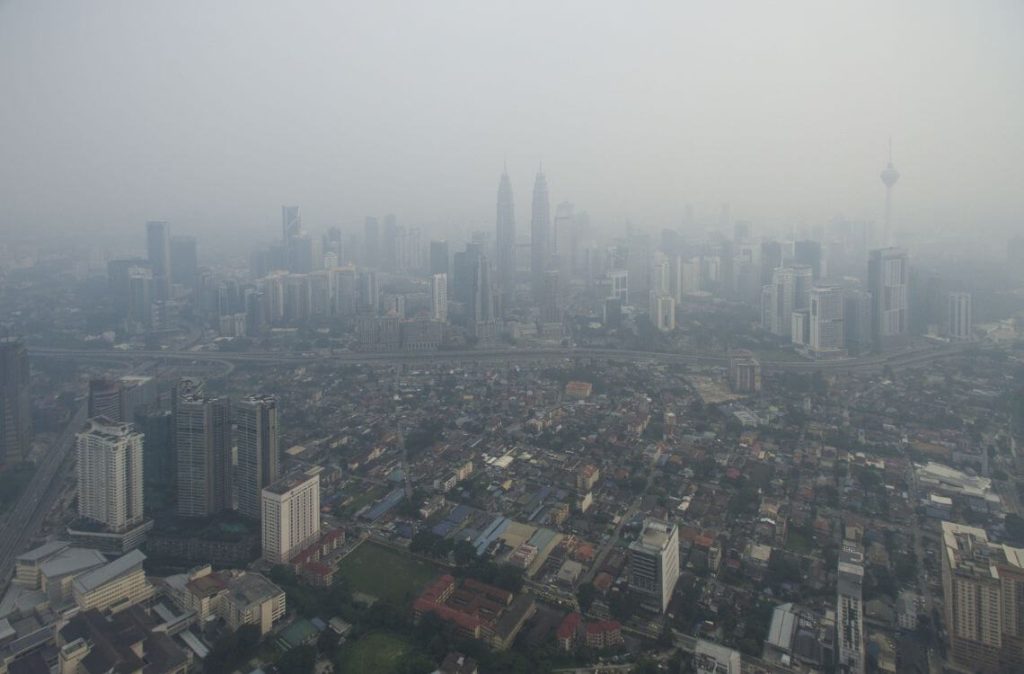The Minister of Education, Fadhlina Sidek, urged that schools can’t conduct outdoor activities if the air pollution index (API) reading exceeds 100.
As of 5 p.m. today, there are two stations with API reading exceeding 100 and 60 stations exceeding 50.
The minister said that the decision to close school or wearing masks would be done following the Health Minister’s advice.
With the haze season going on right now, what can we as parents do to protect our kids?
Let’s find out together, shall we?
What Is Haze
For those that may not be sure, haze is a state of poor air quality.
According to MyHealth, haze is usually caused by high concentrations of air pollutants suspended in the atmosphere.
There are multiple components of air pollutants that can affect our health.
Some of them include:
- ozone
- carbon monoxide
- nitrogen dioxide
- sulphur dioxide
To distinguish whether the quality of air is good or not, we use the API which is an index developed based on the air pollutants.
The API value is then grouped to determine the air quality status.
You can check the Air Pollutant Index Management System (APIMS) to check the API value as they update hourly.
Effects of Haze on Our Health
The effect of the haze is associated with the severity of the air quality status.
The higher the API level, the stronger the effects.
Some of the effects include:
- difficulty in breathing
- heart attack
- throat irritation
- eye irritation
- skin irritation
New research by Ahmad Toubasi from University of Jordan suggests that haze can also affect the risk of stroke.
In his study, he mentions that with just five days of exposure can link to an increased risk of stroke.
Who Is at Risk for Haze Related Health Issues
Everyone is at risk of developing health issues.
However, there are certain groups that are more vulnerable to developing issues and that includes:
- children
- elderly
- people with respiratory problems
- people with heart disease
- smokers
What You Can Do As Prevention
Here are some tips to minimise the effect of haze on your health:
- reduce outdoor activities
- avoid smoking
- drink plenty of water
- wash hands and face frequently after outdoor activities
- seek medical advice
- keep your indoor environment clean
It’s not been made mandatory now, but if you want to wear a mask, it’s very much advised to do so.
If you have asthma or heart disease, do make sure that you have adequate supply of medicine and take them regularly.
If your condition worsens, please see your doctor immediately.
What to Do Indoors
These next few days, if things get worse and schools are closed, you can take this opportunity to spend time with your family.
There are a bunch of things to do indoors.
Plan a movie night, play games, or cook together.
Use this opportunity as a way to spend some much-needed bonding time with your family.
Always be aware of the news and check the APIMS website so you’d know when it’s okay to be outside again.
Remember to stay healthy and hydrated!
Disclaimer: The information provided in this article is for informational purposes only and should not be considered as medical advice from Motherhood. For any health-related concerns, it is advisable to consult with a qualified healthcare professional or medical practitioner.
For more insightful stories and fun recipes, stay tuned to Motherhood Story!
